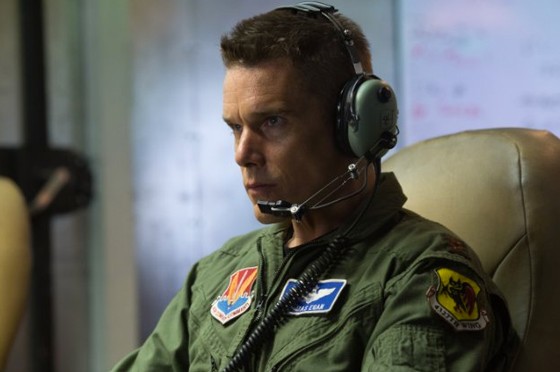Today is my last day in Venice, which always makes me blue. Yesterday morning, on the way to my final screening, a tourist with an Eastern European accent I couldn't quite identify stopped me a block or so from the sad and shuttered Hotel des Bains and asked me if it was open. "I have seen it in the Visconti film," he said, referring to the 1971 adaptation of Death in Venice, "and was hoping to go inside." When I told him that the hotel had been closed for several years now, and that the proposed construction to turn this grand old building into luxury condominiums had stalled out, he looked as forlorn as the building itself does. "I had hoped they'd turned it into a museum," he said.
If only. The hotel, when I finally walked by it last week, looked sadder than ever. A few of its windows had been hastily boarded; a splash of graffiti marred the concrete pillar near its locked-tight front gate. A friend told me that the locals consider what has happened to the hotel "one of the great shames of Venice." My friend and colleague Margaret, who was a yearly patron of the hotel until it closed, in 2010, told me how beautiful it was: Slightly threadbare, but whisperingly elegant nonetheless. After it shut down, one of its loyal employees had found another job at Venice's most famous hotel, the Danieli - a colleague of Margaret's spotted him there and said hello. The two men chatted warmly for a minute, and then, unprompted, the staffer asked the fellow, "Be sure to say hello to Margaret for me." If the hotel as he knew it had become a ghost, its patrons still meant something to him.
My last film here was Andrew Niccol's Good Kill, a Hollywood drama - polished and efficient, with big stars - that nonetheless throws off a pretty potent political charge. Ethan Hawke stars as Thomas Egan, a drone pilot who lives in Las Vegas with his wife (January Jones) and two kids. Every day, he leaves his pleasantly manicured, anonymous-looking airbase home for work, where he sits down in front of a console and picks off Taliban - and more than a few unlucky Afghani civilians - from the safety of his chair.
This is an action film where we watch all the action from a safe remove: We see it just as Egan does, framed in the squared-off context of a computer screen, which is not so different from a movie screen - it's all so close, yet so far away. The picture is quiet, tense, and thoughtful. That's not uncharacteristic for Niccol, who has a knack for teasing out complex sociopolitical threads in even his science-fiction films (Gattaca, In Time) without turning them into stupidly didactic civics lessons. But Good Kill is something else again, a picture rooted in the here and now. It's set in 2010, but in 2014 the moral issues it raises have grown more crucial rather than less.
And its moral conscience has a great face: That of Ethan Hawke who has always been a thoughtful, quietly expressive actor, but who seems to be finding even subtler shades of color as he rounds the bend toward middle age. He's not so much expanding his range as deepening it. Hawke - who also appears in another festival film, Michael Almereyda's sly, provocative Cymbeline - plays Egan as a man who holds his anguish tight and close, as if, somewhere along the line, his heart had turned into a fist. The character is basically one you've seen many times before -- the soldier who's haunted by the horrors he perpetrates in the line of duty - but Hawke keeps this performance hushed and low to the ground, making the ramifications of this new type of warfare distressingly intimate. The battle, this time, is much closer to home.
See also:
Venice Film Festival: Michael Almereyda Makes Magic with Cymbeline
Venice Film Festival: Al Pacino Rediscovers His Inside Voice
Venice Film Fest: Joshua Oppenheimer's The Look of Silence
Venice Film Fest: In Birdman, Michael Keaton Is Haunted by His Superhero Past
Follow @VoiceFilmClub
Subscribe to the Voice Film Club podcast

Photo by Lorey Sebastian
Ethan Hawke in Good Kill.
- Local St. Louis
- News
- Things to Do
- Arts & Culture
- Food & Drink
- Music
- Movies
- St. Louis in Pictures
- About Riverfront Times
- About Us
- Advertise
- Contact Us
- Jobs
- Big Lou Holdings, LLC
- Cincinnati CityBeat
- Louisville Leo Weekly
- Detroit Metro Times
- St. Louis Riverfront Times
- Sauce Magazine

